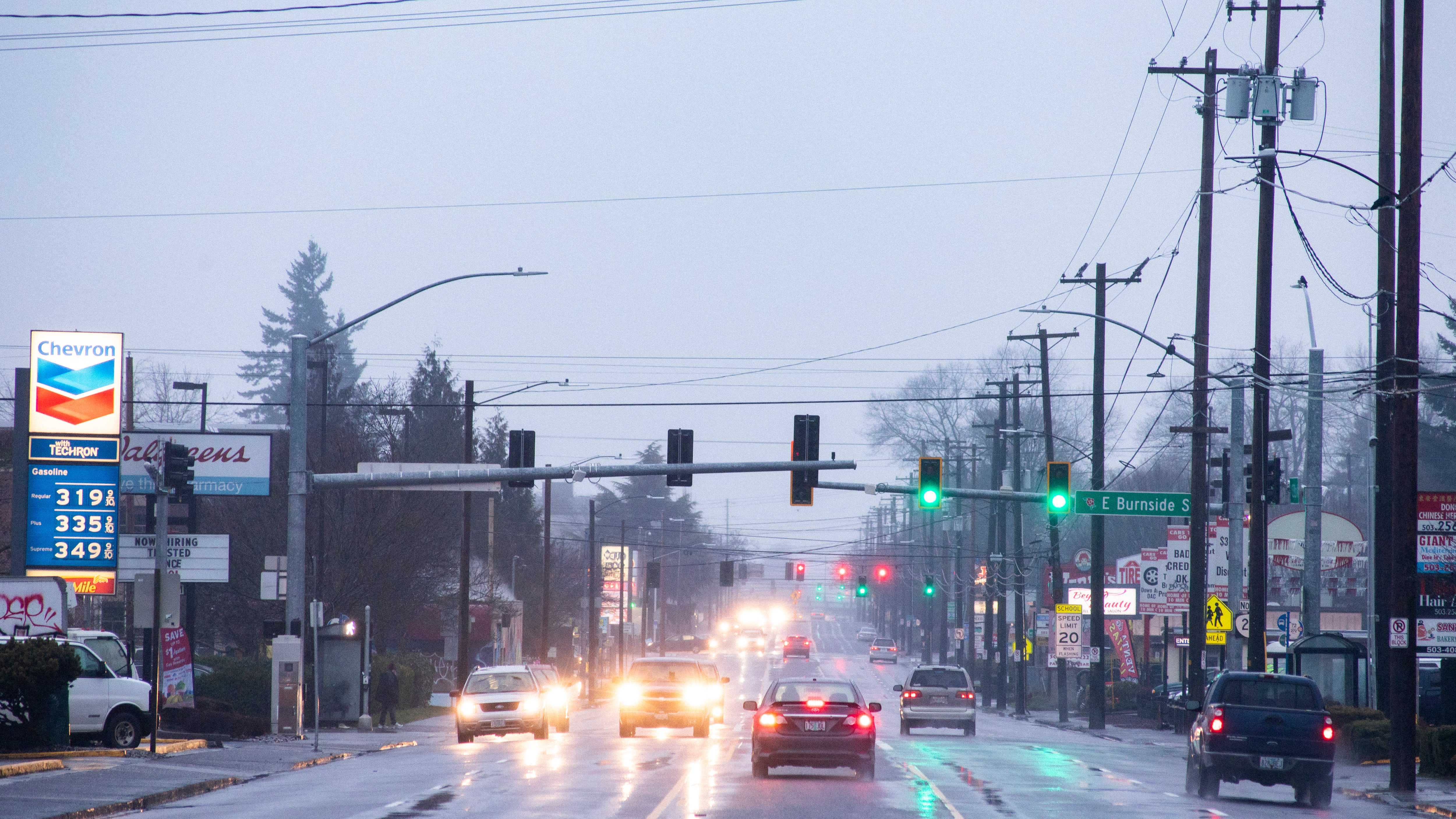Last month, two men lost their lives at an intersection on Northeast 82nd Avenue, a street that has been awaiting traffic safety improvements for decades.
One of the improvements: a request the city of Portland made to the Oregon Department of Transportation last May to lower the speed limit from 35 to 30 miles per hour. Nearly a year later, that request was granted and ODOT made a formal announcement Friday afternoon it would invest $10 million in pedestrian safety improvements, including $3 million on 82nd Avenue.
It came just hours before a virtual rally where community members, transportation safety advocates and elected officials gathered in order to spotlight the lack of investment East Portland faces, with a focus on 82nd Avenue.
Among the speakers were Rep. Khanh Pham (D-East Portland) and City Commissioner Jo Ann Hardesty.
Hardesty said ODOT made its decision in response to community pressure, such as Friday’s planned rally. She called the $3 million investment on 82nd a drop in the bucket and merely the beginning of the $185 million worth of improvements that need to happen in East Portland.
“I am pleased that ODOT today, after a year of waiting, finally decided they would lower the speed on 82nd. I know today that announcement was not an accident,” Hardesty says. “It happened because they knew that we were organizing, that we were going to put pressure on them, that we were no longer going to allow the platitudes. That’s why the announcement came today, and don’t let anybody tell you any different.”
Pham is sponsoring a bill that would transfer state-owned arterial roads like 82nd Avenue to local control. But first, Hardesty says, city officials want ODOT to pay for the $185 million in safety improvements on those roads, saying it’s the state’s fault that East Portland doesn’t have sufficient lighting, crosswalks and sidewalks.
“We will not take on the debt that the state has failed to actually fund without those improvements happening first,” Hardesty says.
ODOT spokesman Don Hamilton says the question of who’s going to pay for the improvements is under discussion right now between the city and the state. As to whether ODOT’s decision was made in response to community demand, he told WW that Friday was when everything fell into place.
“It’s because these projects were ready. They’ve been in the works for a while, and we’ve been working to get this funding ready to go,” Hamilton says. “Who will fund improvements is exactly what one of the issues may be.”
Personal anecdotes were shared during the event as well. Duncan Hwang, associate director of Asian Pacific American Network of Oregon, says he sees people nearly get hit almost every day on Southeast 82nd Avenue in the Jade District.
“Traffic safety has been important to us for years,” Hwang says. “We’ve been waiting and working on this issue for so long. Every year we delay we’re losing more lives.”
Vivian Satterfield, an outreach staffer with the nonprofit Verde, recalled being hit by a car while riding her bicycle.
“I was at a complete stop, and it hit me from behind at 35 miles per hour. I do know how violent that is on your body,” Satterfield says. “I do know that my life was forever changed due to that incident, and I know that the driver’s life was forever [changed] due to that.”
Hardesty is the city’s first transportation commissioner to live east of 82nd Avenue. She emphasized her commitment to slowing traffic and lowering deaths in the streets.
“This vehicle violence is increasing significantly,” Hardesty says. “82nd is what we’re talking about today, but you can go on any street in East Portland and see people driving as if they are on an empty freeway. As elected leaders, we have an obligation to address that using every tool we have.”

